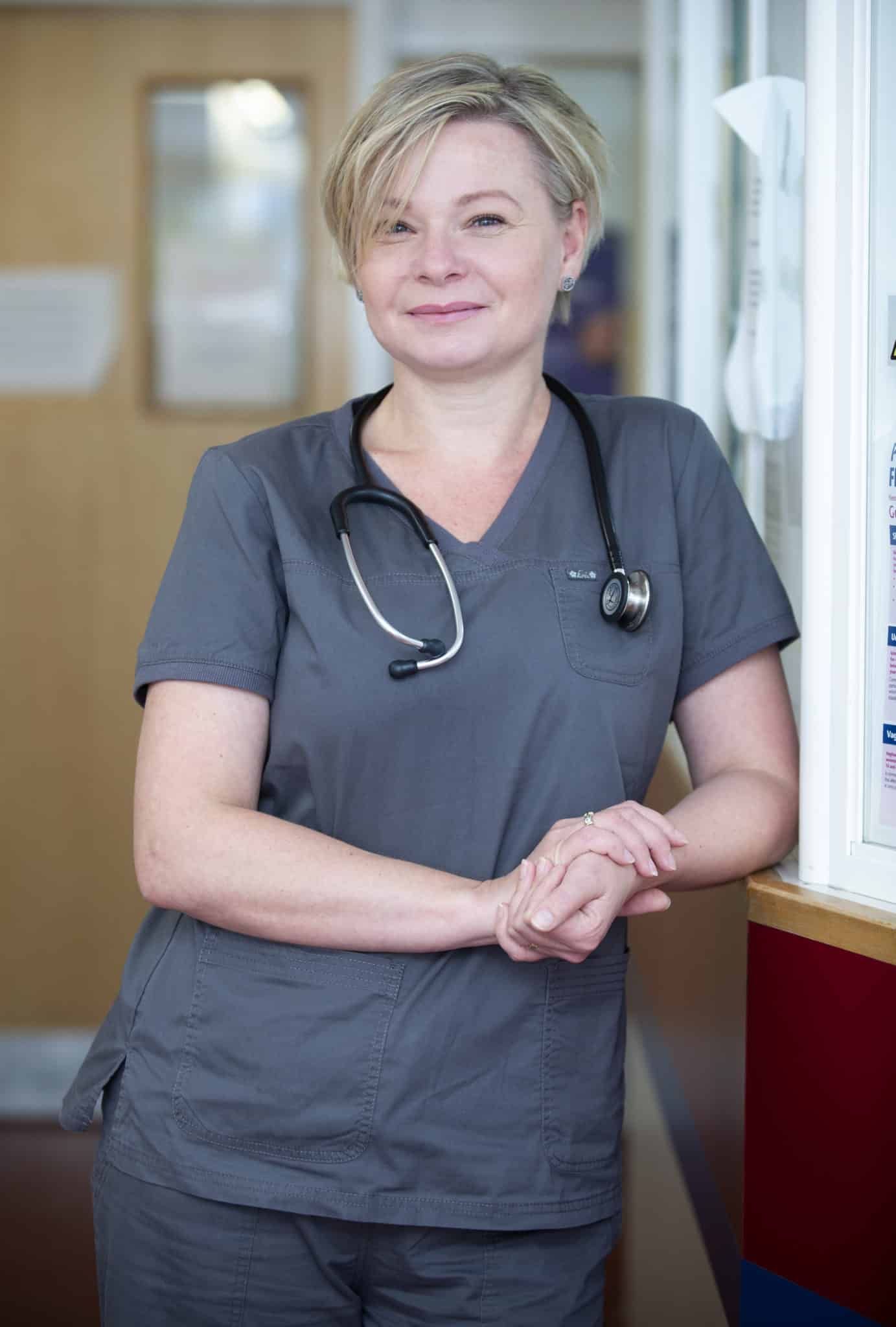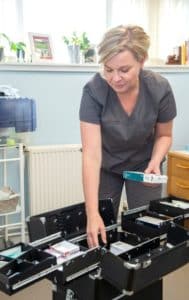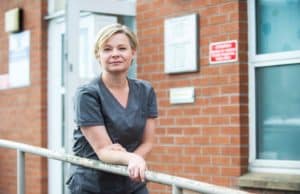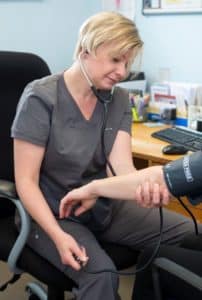Gabriela Maxwell
Advanced Nurse Practitioner
Falkirk

The Graeme Medical Centre in Falkirk serves around 5,300 patients including those with very complex needs and multiple chronic conditions as well as a mixed ethnic population with varying language skills. There are four GPs and two ANPs as well as a team of practice nurses, district nurses and health visitors. Teamwork is essential to provide the best patient care and I have an advisory role, supporting my colleagues. The clinical staff are supported by the practice manager and six reception staff. As an ANP, my main role is in improving patients access to primary care services, whether this is through triage, direct consultation or signposting to appropriate services. An ANP provides full autonomous patient care from point of assessment, treatment and follow up.
 When I moved to the UK from former Czechoslovakia, I had done teacher training but unfortunately my qualifications were not accepted here. I had to decide on a move and studying nursing was one option. As a student I worked in intensive care, and it was a love at first sight – there’s no other way to describe it. During my time in intensive care, I was delivering specialised care for that period in a patient’s life and I realised that I wanted to engage with patients on a deeper level. I felt I could bring my clinical expertise to a wider audience and this led to taking the first steps to becoming an ANP and extending my role across acute medical wards and A&E. The opportunity became available to apply for a post as ANP within primary care setting. I was first in a team of ANPs employed by NHS Lanarkshire, focusing on not only urgent care but prevention and early intervention.
When I moved to the UK from former Czechoslovakia, I had done teacher training but unfortunately my qualifications were not accepted here. I had to decide on a move and studying nursing was one option. As a student I worked in intensive care, and it was a love at first sight – there’s no other way to describe it. During my time in intensive care, I was delivering specialised care for that period in a patient’s life and I realised that I wanted to engage with patients on a deeper level. I felt I could bring my clinical expertise to a wider audience and this led to taking the first steps to becoming an ANP and extending my role across acute medical wards and A&E. The opportunity became available to apply for a post as ANP within primary care setting. I was first in a team of ANPs employed by NHS Lanarkshire, focusing on not only urgent care but prevention and early intervention.
 My move into the community was motivated by the desire to have continuity with patients and to get to know a larger patient group. It’s what I love about being an ANP in primary care – you’re a time traveler in someone’s life, you may see them in early childhood, as teenagers and then as young adults. I want to make a difference for every person I meet – everyone deserves the opportunity to live well and keep well. I am involved in prevention, health promotion, making sure people take up health screening, vaccinations, addressing lifestyle choices, signposting people effectively, dealing with acute illness or helping to manage chronic conditions. ANPs must demonstrate skill and excellence in areas of clinical competency, education, leadership and research. It requires a broad range of skills – no two days are ever the same. In the community, you have time to have more in-depth discussions to empower people to make informed decisions. The real positive thing for me is the continuity of relationships – trust and knowledge of people’s lives builds over time.
My move into the community was motivated by the desire to have continuity with patients and to get to know a larger patient group. It’s what I love about being an ANP in primary care – you’re a time traveler in someone’s life, you may see them in early childhood, as teenagers and then as young adults. I want to make a difference for every person I meet – everyone deserves the opportunity to live well and keep well. I am involved in prevention, health promotion, making sure people take up health screening, vaccinations, addressing lifestyle choices, signposting people effectively, dealing with acute illness or helping to manage chronic conditions. ANPs must demonstrate skill and excellence in areas of clinical competency, education, leadership and research. It requires a broad range of skills – no two days are ever the same. In the community, you have time to have more in-depth discussions to empower people to make informed decisions. The real positive thing for me is the continuity of relationships – trust and knowledge of people’s lives builds over time.
 Alongside my clinical experience, I have always continued academic study over a total of nine years. But the Queen’s Nurse programme has been completely different – it has blown my mind. It has been a totally transformational experience. It has re-ignited my passion for nursing and allowed me to reconnect with a nursing community that shares the same standards and values. It’s helped me in so many ways; reflecting more openly, seeing through the eyes of others and showing me how to be more present. Where I recognise it has really helped me is in how I use language and how I use my existing set of skills to make enable people to take control of their decision making, their journey, and their health and how I conduct my consultations. I am there in a supporting position but they are in the driving seat.
Alongside my clinical experience, I have always continued academic study over a total of nine years. But the Queen’s Nurse programme has been completely different – it has blown my mind. It has been a totally transformational experience. It has re-ignited my passion for nursing and allowed me to reconnect with a nursing community that shares the same standards and values. It’s helped me in so many ways; reflecting more openly, seeing through the eyes of others and showing me how to be more present. Where I recognise it has really helped me is in how I use language and how I use my existing set of skills to make enable people to take control of their decision making, their journey, and their health and how I conduct my consultations. I am there in a supporting position but they are in the driving seat.
[/wc_toggle]
Gabriela has recently changed roles as is now Nurse Consultant Primary Care at NHS Lanarkshire.